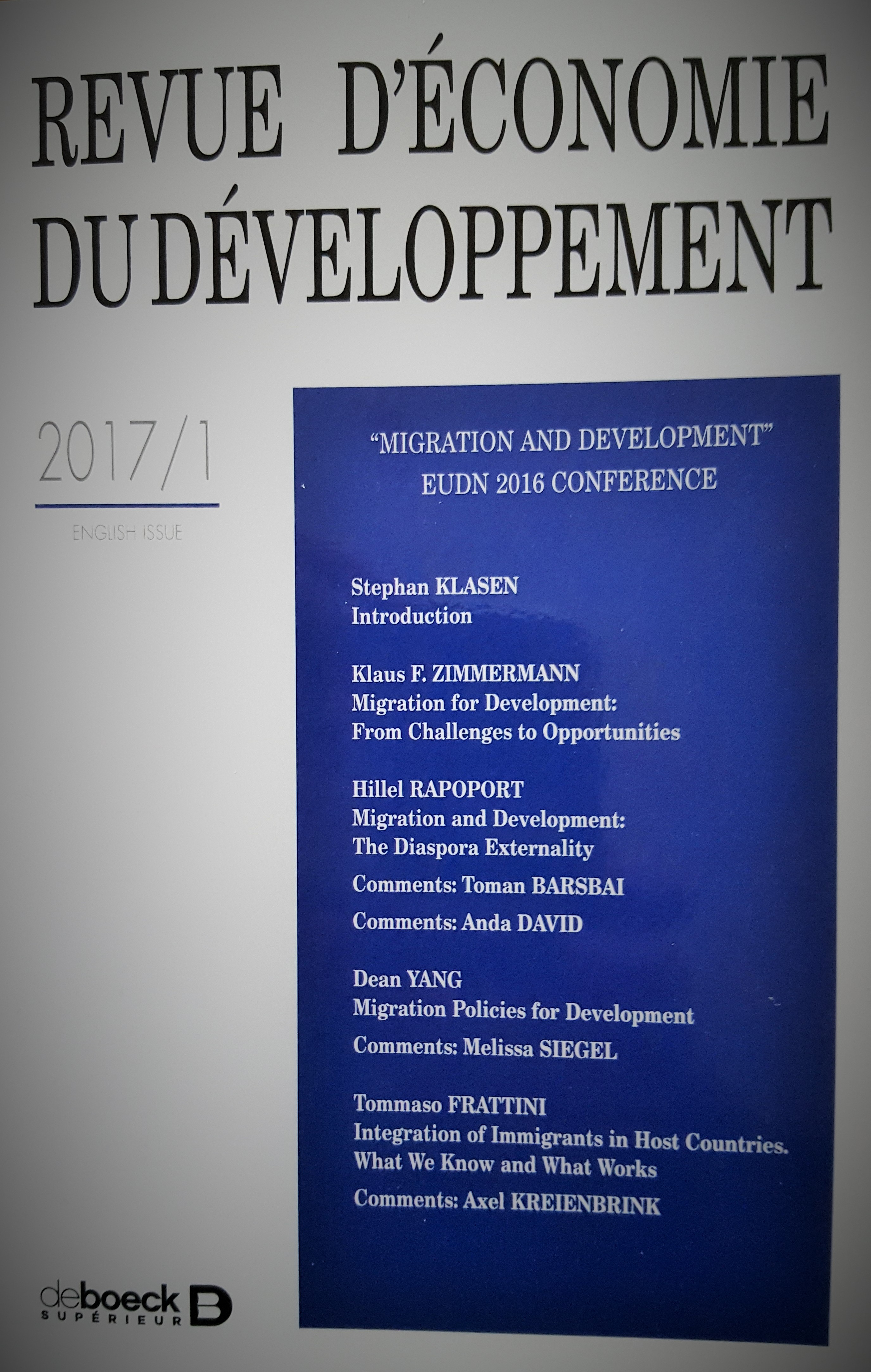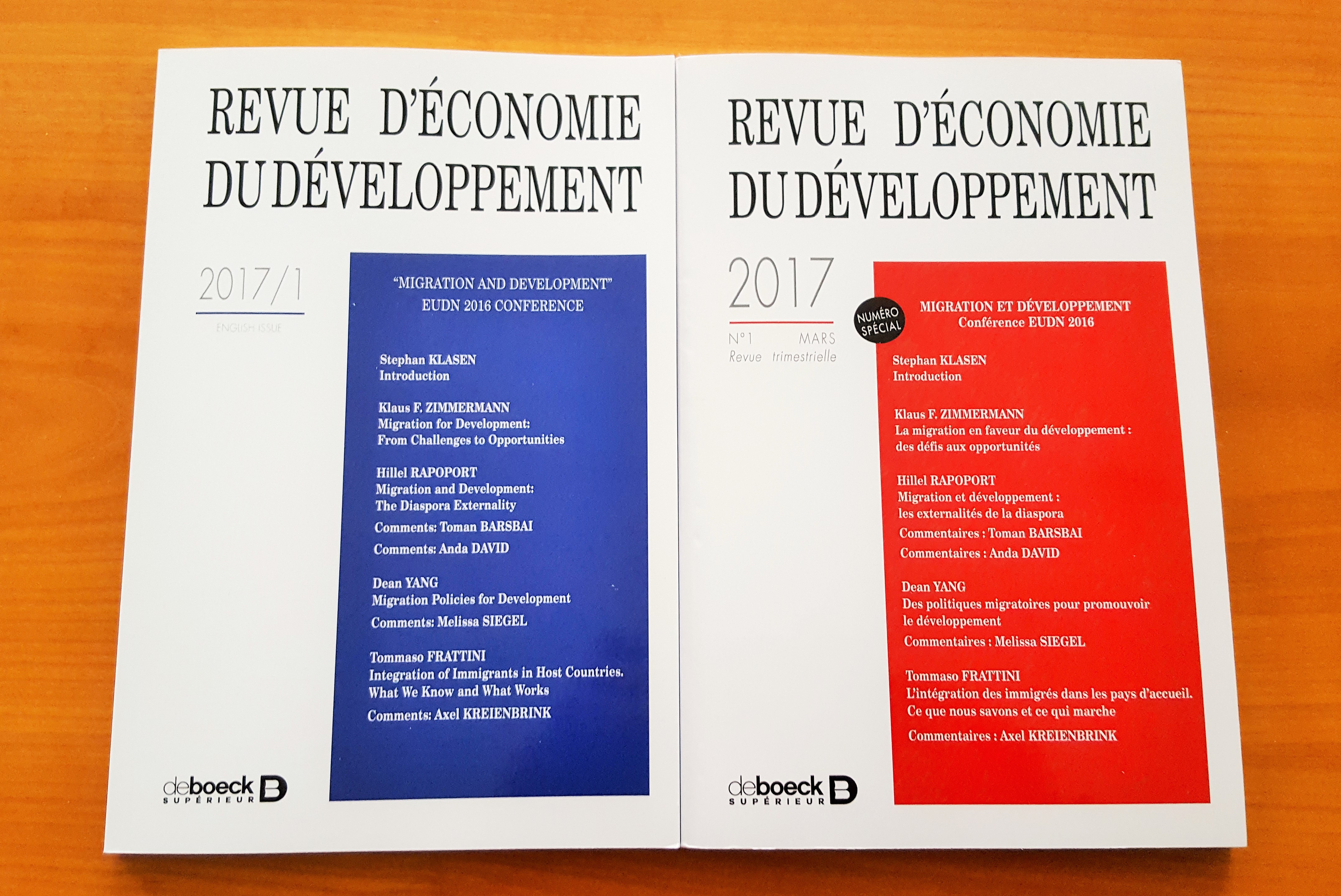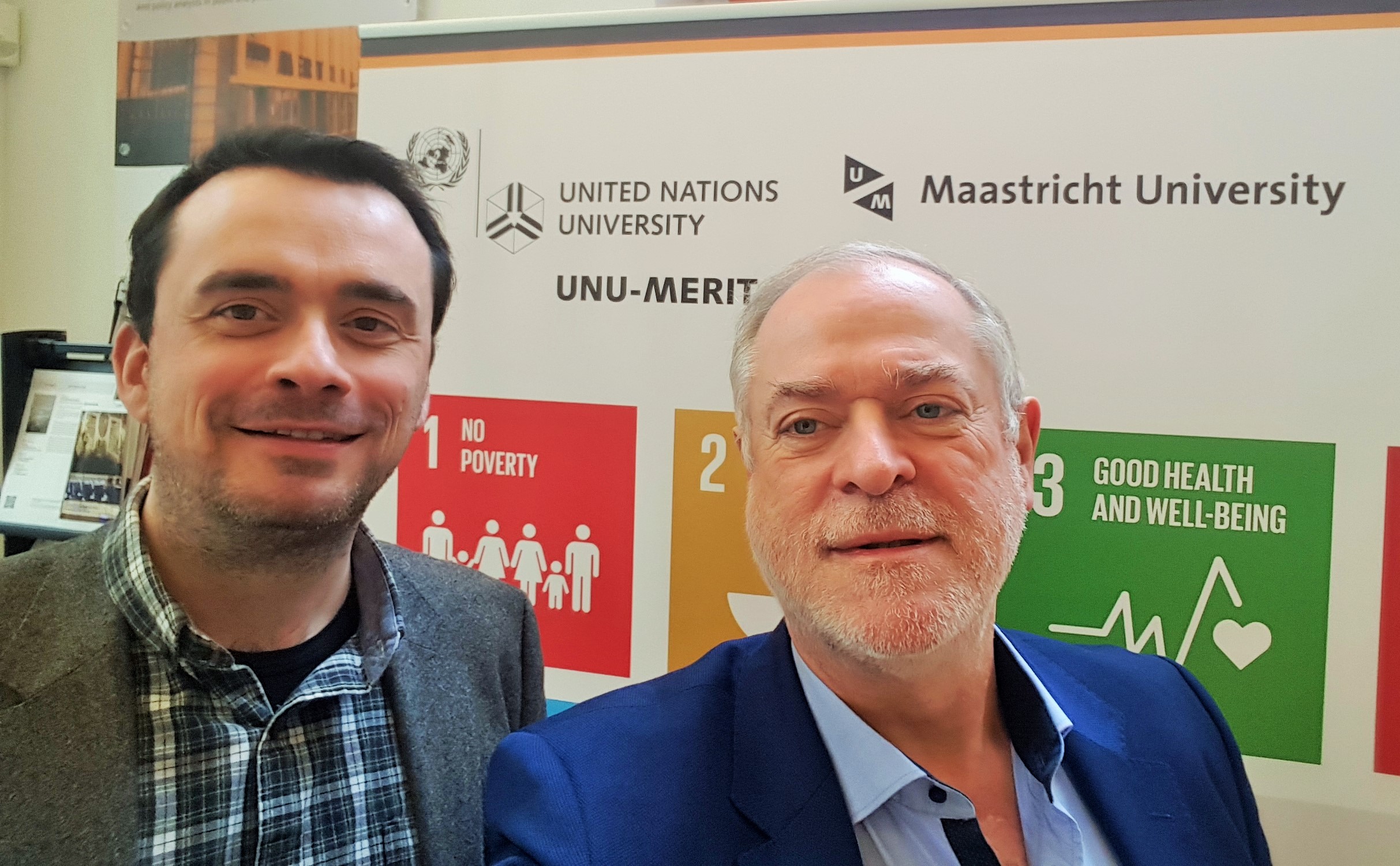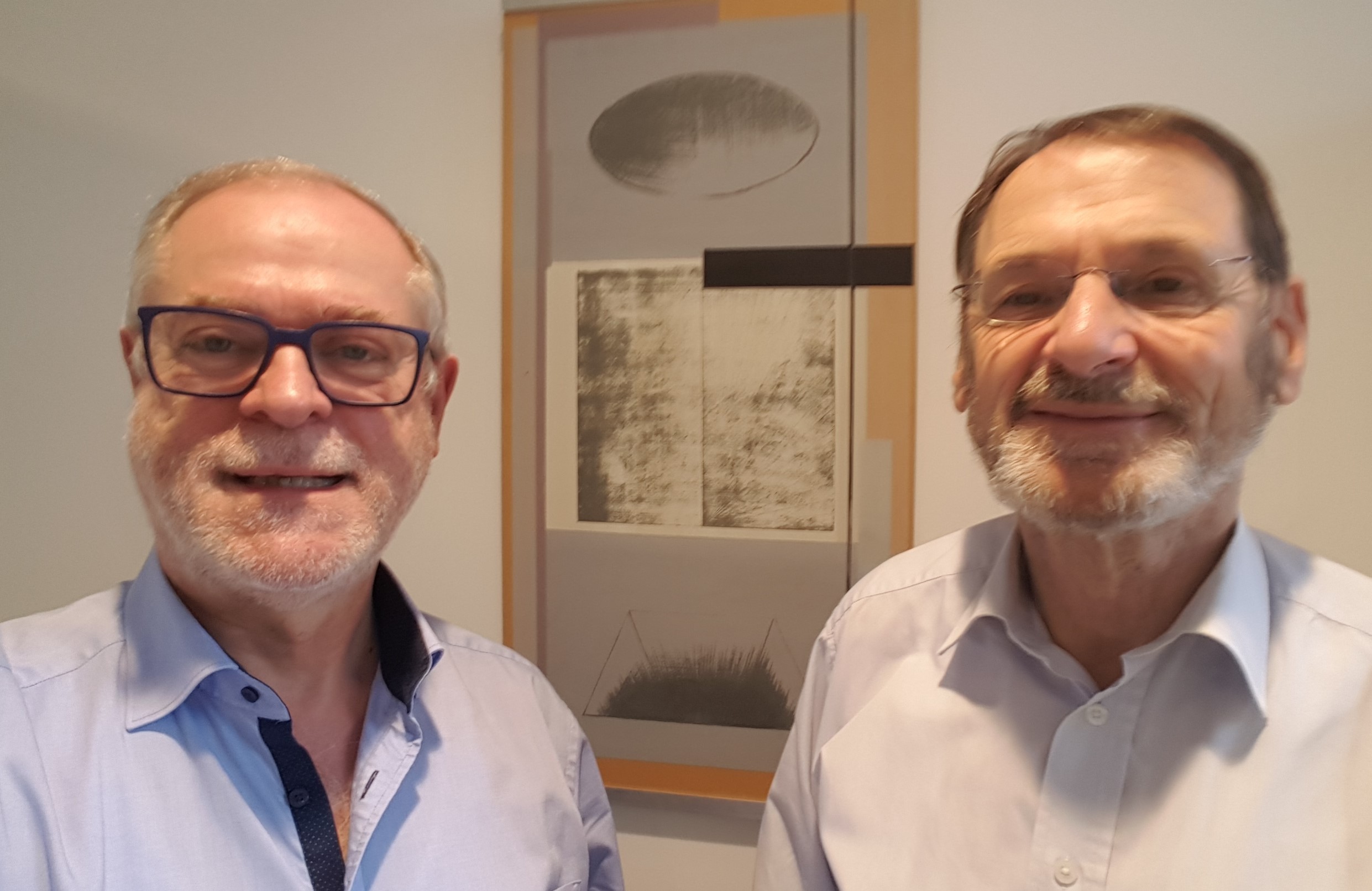Migration und Arbeitsmarkt bewegt Europa in vielfältiger Weise. Klaus F. Zimmermann (UNU-MERIT, Maastricht Universität und Universität Bonn), der auch Präsident der Global Labor Organization (GLO) ist, hatte diese Thematik jüngst in Österreich in Wien diskutiert:
Im Kontext mit diesen Veranstaltungen entstand ein Grundsatzinterview “Migration belebt den Arbeitsmarkt”, das Helmut Kretzl für die “Salzburger Nachrichten” führte und das in print und online am 24.3. 18 erschien und zum 30.3.18 freigeschaltet wurde. Orginaltext “Salzburger Nachrichten”
Vereinbarte Textfassung Pre-publication:
- Zwei Themen beherrschen den Arbeitsmarkt: Arbeitslosigkeit und Fachkräftemangel. Ist das nicht ein Widerspruch?
Es gibt einen Arbeitsmarkt für die Qualifizierten und einen für weniger Qualifizierte. Auf dem einen kann es Facharbeitermangel geben, auf dem anderen Arbeitslosigkeit. Zugleich kann auch Fachkräftemangel selbst Arbeitslosigkeit erzeugen, weil ohne Fachkräfte gewisse Produktion nicht stattfindet, weil dabei auch geringer Qualifizierte mitwirken.
Wenn also neue Fachkräfte ins Land kommen, ob als Migranten oder von der Hochschule, schaffen sie damit auch Nachfrage nach anderen, die schon da sind. Und wenn dieser Markt leergeräumt ist wie jetzt, dann kann man auch andere Leute nicht in Beschäftigung bringen, die noch arbeitslos sind.
- Wie kann man dieses Problem lösen ?
Man könnte Leute ausbilden – aber bei schrumpfender und alternder Bevölkerung ist es unwahrscheinlich, da rasch jemanden zu bekommen. Oder man könnte Leute durch Zuwanderung holen.
- Ist also der jüngste Zuzug von Migranten gerade zur richtigen Zeit gekommen?
Ich glaube nicht, dass wir mit der Flüchtlingszuwanderung unser demografisches Problem gelöst haben. Erstmal ist die Zuwanderung viel zu klein, um relevant zu sein. Auch in Deutschland, wo sie relativ groß ist. Von einer Million Flüchtlingen bleiben am Schluss nur 400.000 übrig, die in der Lage sind, am Arbeitsmarkt zu bestehen – wegen Rückwanderung, Nichtanerkennung oder fehlender Qualifikation. Selbst wenn sie alle arbeitslos wären, würde die deutsche Arbeitslosenquote nur um einen halben Prozentpunkt steigen, also praktisch nicht bemerkbar.
Und für eine ökonomisch begründete Zuwanderung sind die Leute zu schlecht ausgebildet. Ich sage nicht, dass man berechtigten Flüchtlingen nicht eine Chance geben soll. Aber das löst unser Problem am Arbeitsmarkt nicht.
- Wie können wir mehr qualifizierte Zuwanderung bekommen?
Das müsste man anders regeln und so wie Australien oder Kanada nach bestimmten Kriterien auswählen. Oder man lässt den Arbeitsmarkt entscheiden. Das gibt es im Prinzip in Deutschland schon heute. Wer hochqualifiziert ist, einen Universitätsabschluss hat oder genug verdient, braucht nur ein Jobangebot, dann kann ihn keiner dran hindern. Das wird aber kaum angenommen. Viele bleiben lieber in Australien oder gehen nach Amerika, wo sie mehr gewollt werden. Denn durch die Flüchtlingsdebatte haben wir in Europa das Image, wir wollen gar keine Zuwanderung. Das verhindert auch, dass sich Hochqualifizierte bewerben. Der richtige Weg bei Flüchtlingen ist, möglichst frühzeitig zu schauen, wie sie qualifiziert werden und arbeiten können, bevor das Asylverfahren abgeschlossen ist. Ihr Arbeitsmarktpotenzial kann schon bei ihrer Ersterfassung festgestellt werden. Wie gut funktioniert der innereuropäische Arbeitsmarkt, für den ja Freizügigkeit gilt?
Bei der Entwicklung des gemeinsamen Europa in den 50er Jahren war es das Ziel, dass alle Bereiche des Wirtschaftslebens frei sind, auch der Arbeitsmarkt. In der Ökonomie ist ja nicht immer alles im Lot. In Spanien haben 50 Prozent der Jugendlichen keine Perspektive, während es in Ländern wie Österreich oder Deutschland Jobs gäbe.
Die Idee ist, dass diese Menschen sich frei bewegen dürfen, einen Job bekommen und dann Teile ihres Einkommens rücküberweisen in ihre Länder. Das findet auch zunehmend statt. Europa ist flexibler geworden – durch die Osteuropäer, aber auch durch Zuwanderer aus Drittstaaten außerhalb Europas. Insofern ist die freie Mobilität von Migranten durchaus sinnvoll, rein ökonomisch gesehen.
- Warum aber kann der EU-Arbeitsmarkt Asymmetrien doch nicht völlig ausgleichen?
Wegen Sprache, Klima und sozialen Netzwerken ist die Wanderungsbereitschaft immer noch nicht hoch genug. Mit der Integration der Euro-Länder hat die Mobilität aber zugenommen. So ist es gelungen, asymmetrische Schocks besser abzufangen, die Arbeitslosigkeit ist gesunken, das Bruttosozialprodukt gestiegen.
Trotzdem gibt es die Diskussion, dass Migranten kommen, um die Sozialsysteme auszubeuten. Die Politik hat das noch geschürt. Und wenn sie arbeiten, hat man gesagt, Polen, Bulgaren und Rumänen würden Einheimischen die Arbeitsplätze wegnehmen. Aber das ist eine empirisch nicht fundierte politische Meinung. Die Arbeitsmarktforschung zeigt, dass Migration die Arbeitsmärkte belebt hat. In England steht der „Polish plumber“, der polnische Installateur, auch für Kompetenz in Bereichen, wo man vorher keine hatte. Es ist keineswegs bewiesen, dass Zuwanderung in größerem Stil Arbeitslosigkeit oder Lohndumping generiert hätte. In Einzelfällen mag das passiert sein, aber nicht massenhaft.
- Wie also sollte man Zuwanderung gestalten?
Aus ökonomischer Sicht wären flexible Strukturen die Lösung. Es gibt einen Kanal, wo man sich bewerben und legal – unter Kontrolle – ins Land kommen kann. Wenn es das nicht gibt, kommen die Leute illegal. Es wären auch sogenannte zirkuläre Verträge zwischen Staaten möglich, so dass man etwa Kontingente aus Senegal für Verträge über drei Jahre nimmt. Danach müssen sie wieder zurückgehen.
- Migranten suchen sich also Nischen, wo Einheimische weniger Kompetenzen haben?
Sie suchen Nischen, sie decken auch neue Kompetenzen ab. Oft geht das über Selbstständigkeit, die ja währen der kürzlichen EU-Osterweiterung erlaubt war im Gegensatz zu normaler Arbeitsmigration. Viele Befürchtungen in diese Richtung sind nur Anekdote. Einzelfälle gibt’s immer. Aber man muss auf die Statistiken schauen. Nach der EU-Ostöffnung gab es eine kurze Hysterie. Statistisch lässt sich nicht nachweisen, dass es danach einen Ansturm auf das Wohlfahrtssystem gab. Die Migrationsforschung zeigt auch, dass der meiste Widerstand gegen Migration dort stattfindet, wo es gar keine Migranten gibt. Man hat Angst vor dem, was man nicht kennt.
- Wie lange sollen zugewanderte Arbeitskräfte bleiben?
Die meisten Arbeitsmigranten kommen temporär, belegt die Migrationsforschung. Ein Großteil dieser Zuwanderer will nicht dauerhaft bleiben, sie gehen wieder, wenn sie ihr Geld verdient haben oder arbeitslos geworden sind. Insofern ist die Diskussion „wir werden überflutet und unsere Identität ist bedroht“ überzogen. Außer man behindert die Freizügigkeit. Als man 1973 den Zuzug von Gastarbeitern stoppte, gab es zwei Gruppen. Für die Gastarbeiter aus späteren EU-Ländern gab es freie Arbeitsmobilität. Ihre Zahl sank nach dem Anwerbestopp. Die Leute gingen weg, weil sie wussten, sie konnten wiederkommen. Die andere Gruppe kam aus der Türkei. Ihre Zahl ist gestiegen, obwohl keine Zuwanderung mehr möglich war. Weil sie wussten, dass sie nicht wieder zurück konnten, blieben sie und haben ihre Familien nachgeholt.
- Viele Arbeitnehmer fühlen sich von der Digitalisierung bedroht. Zu Recht?
Digitalisierung ist ein Symbol für Wandel, der stark mit Ängsten besetzt ist. Die Marktwirtschaft ist ja ein ständiges Kommen und Gehen, niemand hat einen Job auf Lebenszeit, täglich droht die Arbeitslosigkeit. Digitalisierung ist unheimlich, weil sie den Einsatz von Robotern bedeutet, das ist jemand anderer, wie ein Migrant. Die Ängste sind ganz ähnlich. Und selbst hochqualifizierte Jobs wie Richter oder Ärzte könnten einmal teilweise ersetzt und automatisiert werden. Aber die Erfahrung mit technischem Fortschritt über die Jahrhunderte zeigt, dass man sich neue Güter und Dienstleistungen einfallen lassen muss und wird. So lange man da neueAufgaben für Menschen findet, ist es sehr unwahrscheinlich, dass uns die Arbeit ausgehen wird.
- Aber sie wird wohl anders aussehen?
Vielleicht gibt es eine Strukturverschiebung zu Aktivitäten, wo der menschliche Aspekt eine größere Rolle spielt. Je sozialer die Aktivität ist, umso wichtiger wird der menschliche Faktor werden. Natürlich gibt es Roboter, die Pflegetätigkeiten übernehmen können. Aber bei der persönliche Ansprache wird es wohl noch eine Weile dauern, bis man Mensch und Maschine nicht voneinander unterscheiden kann.
Bereits vor 20 Jahren hat man das Ende der Arbeit ausgerufen, man dachte, der technische Fortschritt würde kommen und alles wegrationalisieren. Das ist nicht eingetroffen. Im Gegenteil, heute haben wir in vielen Ländern die historisch höchsten Beschäftigungsraten, auch in Österreich. In vielen Ländern ist wieder die Rede von Vollbeschäftigung als Ziel, das war lange kein Thema mehr.
- Die neue österreichische Regierung will Mittel für die Arbeitsmarktpolitik kürzen. Ist das gerechtfertigt?
Das hängt an der politischen Zielsetzung, dabei müssen die sozial- und arbeitsmarktpolitischen Konsequenzen außereinander gehalten werden. Wenn Arbeitsmarktpolitik effektiv Beschäftigung schafft, dann haben nicht nur Menschen einen Job, sondern der Staat gewinnt durch Steuereinahmen und Transferabbau. Solche Kürzungen wären dann auch fiskalisch kontraproduktiv.
Das Interview führte Helmut Kretzl für die “Salzburger Nachrichten”.

Klaus F. Zimmermann, Wirtschaftsprofessor und Präsident der Global Labor Organization (GLO), äußert hier seine Meinung.

Ends;










